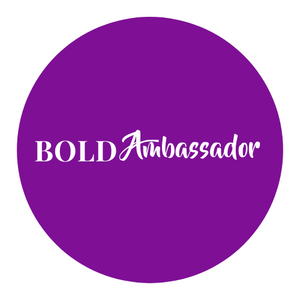Bold ish
Signs of Emotional Abuse in Your Relationship
by Brittany Jorel
A year ago

You're not bruised ... you don't have any physical scars ... so you're not abused, right?
Hidden abuse is just as real as physical abuse. It is called hidden abuse because the trauma isn't as noticeable as physical abuse. Still, it's just as dangerous and damaging.
Hidden abuse is when your partner puts you through emotional and psychological suffering. It's a form of abuse that is difficult to prove and often even challenging to recognize for the one being abused.
So, how can you determine if you are experiencing hidden abuse? Maybe you'll recognize some of the signs in the examples below.
Sign 1: Narcissistic Abuse
This type of abuse encompasses other kinds as well, such as gaslighting. Gaslighting is when you are made to feel mentally unstable and question your perception of reality or your recollection of events. Maybe you are made to feel like you are the only one ever making mistakes in your relationship (i.e. It's your fault your partner is mad or yelling at you). Over time, you may feel the need to constantly apologize, excuse the behavior of your abusive partner and feel like you are simply too sensitive, etc.
Narcissistic abuse also includes belittling and name-calling. A Narcissist will try acting superior to you, lack empathy and care, punish you via silent treatment, and so on.
Sign 2: Partner Paranoia
Does your partner seem paranoid or over-protective about your actions, like where you go, who you spend time with, or who you speak to? They may try to make it sound like they only care for you and your well-being, but it can easily escalate to being dangerous.
Other signs of partner paranoia include:
- Being watched and followed.
- Unexpected surprise visits at work to check in on you.
- Not trusting your privacy on your phone, social media, emails or other devices.
- Feeling like you need to hide phone calls, texts, and visits.
Sign 3: Unpredictable Behavior
Maybe you feel like you're always walking on eggshells, as you have no idea how your partner might react. Perhaps random things cause them to explode in anger, and then you are being treated affectionately and showered with gifts because he was sorry for how he reacted. Such emotional instability and unpredictability is often a tell-tale sign of hidden abuse.
Hidden abuse is very real. It can be hard to recognize, difficult to reach out for support, and often you are left feeling lost and alone. But let me encourage you: there IS a way out.
Three Ways to Support Your Healing Journey as a Survivor
Focus on Self-Care:
Self-care is critical in your healing journey. It's not selfish to check in with yourself and equip yourself with the tools that you need in order to thrive. Self-care can take on many shapes and forms and may mean different things in different seasons of life. It could look like going to therapy, spending more time with family or supportive friends, finding a hobby that truly fills you with joy, etc.
It can also come in the form of small yet important steps, such as learning to say "no" for your own health and sanity. Click here to read a blog post on embracing the power of saying "no".
Set Boundaries:
Be intentional with your boundaries. Having specific boundaries mapped out in advance can help you understand what decision needs to be made when you are in a highly emotional situation. If you try to sort out your boundaries while being emotionally burdened, you likely will not make the best choices. However, a great piece of advice is to "decide now, so you don't have to decide later".
Take time to write out your boundaries. Keep these in a place where you can look at and refer to them often, such as sticky notes by your bathroom mirror or a background image on your phone.
And speaking of writing things down, another great way to support your healing journey is to journal.
Journal:
Journaling is a great way to slow down, breathe, and check-in with yourself. There is something so therapeutic about putting pen to paper (or fingers to keys)! You can let your thoughts and feelings spill all over the page, no matter how messy or precise. This is your private space to empty out your racing mind. It's a great way to process and reflect or to just allow your mind to let it all go. Click here to read a blog post on why I personally choose to journal.
Listen, you are not alone. There are people who want to rally around you if they aren't already. There are others who have lived through abuse and made it out and are now healing and thriving. If they could do it, so can you. I believe in you.

0 comments